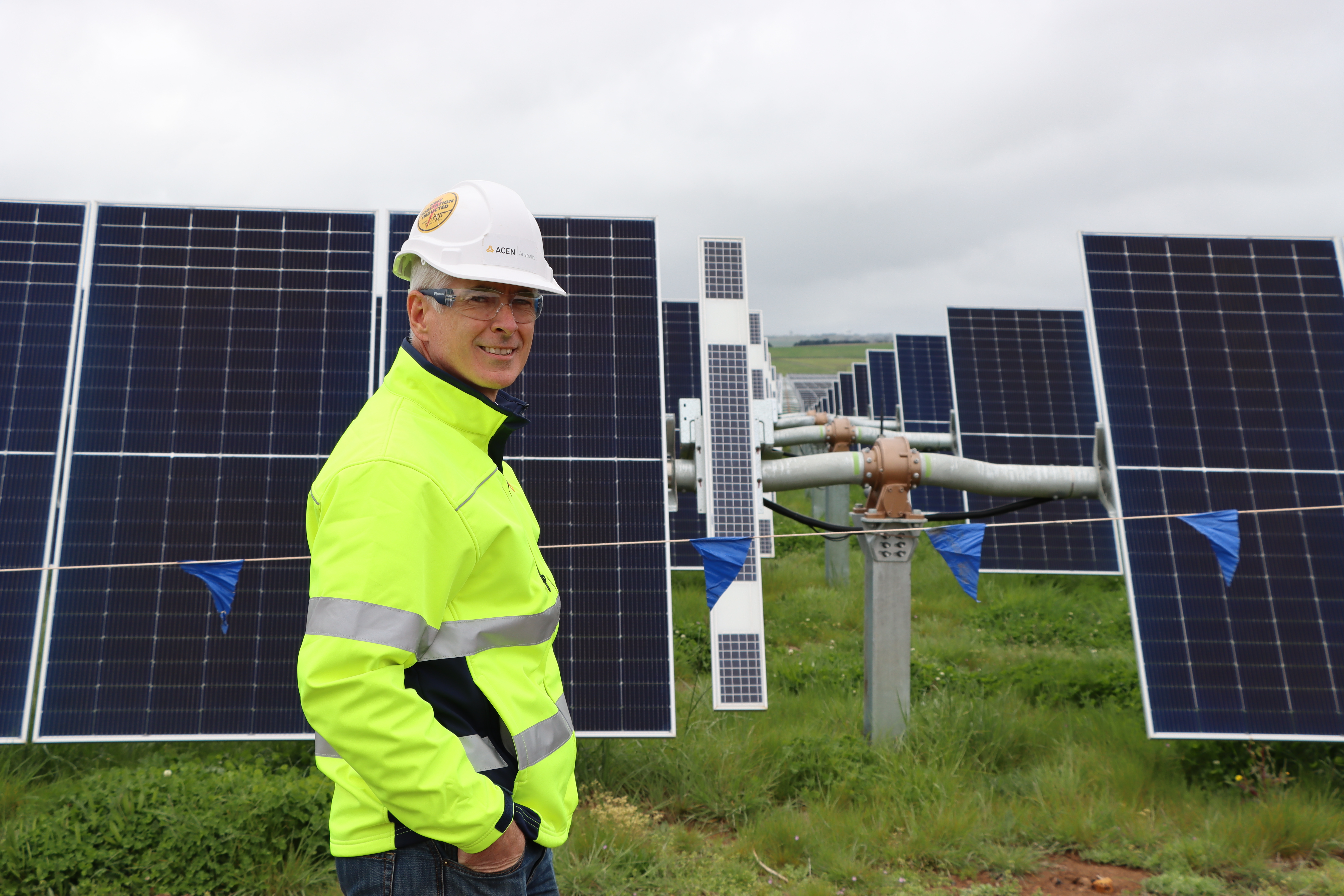The sun will soon rise over Australia's largest hybrid solar and battery energy storage facility, with construction well advanced at New England Solar.
Watch our video for New England Solar.
Once complete, the New England Solar and Battery Project, sitting on a 2,000 hectare site near the NSW town of Uralla, will be home to a 720 megawatt (MW) solar farm and 200 MW/2 hour battery storage system.
Stage one of the project will come online first - a 400 MW solar array - with Stage 2 adding a further 320 MW. Their combined 1.5 million solar panels will provide zero emissions electricity to homes and industry in New South Wales and Queensland.
ACEN Australia's Construction Manager Tim Greenaway, put that into perspective: a typical rooftop solar system for a residential house might consist of around 20 panels, giving an idea of the sheer scale of this project.
Tim says the project will be key in assisting Australia's transition to a cleaner, greener energy market.
"Stage one by itself will provide enough power to support 140,000 homes," he says.
"And we're expecting the completed 720 MW project will be able to provide sufficient power for 250,000 homes.
"The battery is an important part of that - it provides additional stability for the grid and consistency of supply, but also can provide energy at peak demand times, particularly later in the afternoon."
The New England region is seeing the benefits from the project, too. A grants program has already seen $100,000 provided to the local community. This commitment will continue into the project's 25+ year life with more than $100,000 every year expected to be invested through local social investments aligned to stage 1 operations which will increase to $180,000 per annum when stage 2 is operational.
"We've worked really hard to make sure the community benefits from the project," says Tim.
"There's a commitment to continue the grants program for the life of the project, creating a generation of positive outcomes for community."
The project has worked with local First Nations groups to create an exclusion zone to protect culturally important sites. But importantly, ACEN Australia has extended beyond this and has committed to establishing access tracks to a culturally significant site located within the project area so that local First Nations can access it in a safe and controlled way once the solar asset is operational.
Local landowners have also been a part of the project, with plans in place to facilitate future farming on the site - think sheep grazing beneath the panels.
"It's been a great relationship, a very open, honest relationship. And one that's really important because it's a long-term relationship," says Tim.
"We've been well received in the local community and that's something we are very conscious of and respectful of.
"It's really, really important to us and it's something we do work hard to maintain. Thank you to the local community for their support."
